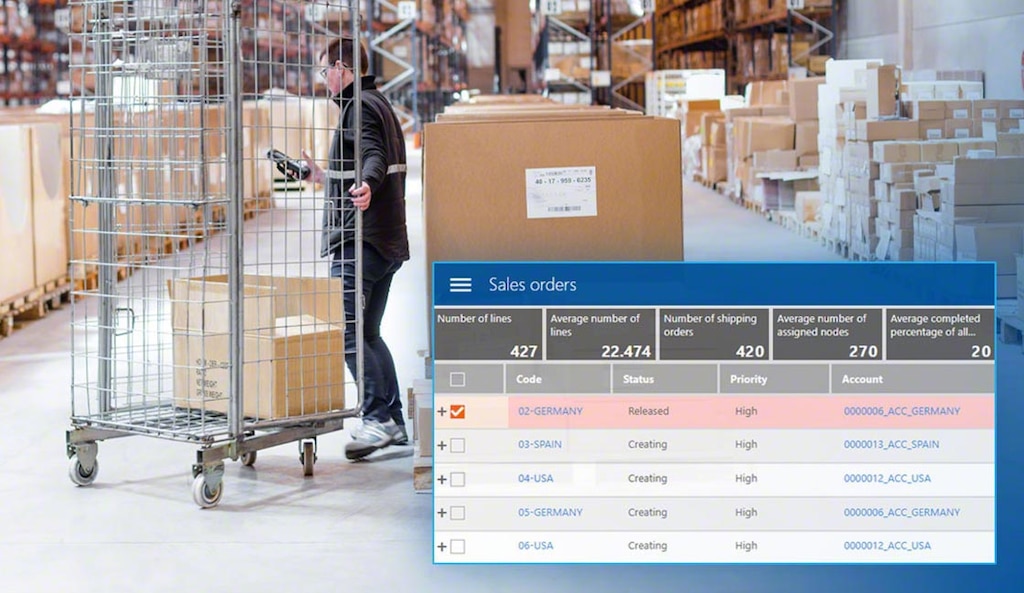
Data science in supply chain and applications
Data science is becoming increasingly prominent in all activities related to the supply chain.
What is data science in supply chain?
Data science in supply chain management consists of leveraging information from sources such as deliveries, warehouse management systems, vehicle tracking, geolocation and customer locations to optimise these processes and create a more efficient business ecosystem. Collecting data for analysis enables a deeper understanding of operations, facilitating more informed decision-making.
All these aspects — from order processing and shipping to distribution and final consumption — can be analysed by data scientists. Their work, in turn, can improve business productivity and efficiency.
What does data science do in the supply chain?
Data science has become a crucial tool for optimising shipping, designing efficient delivery routes and, ultimately, outdoing competitors in terms of quality and service. For instance, the Easy DOM distributed order management system automatically assigns ideal distribution points based on each logistics centre’s inventory levels and workload to minimise costs and maximise benefits.
These are some applications of data science in the supply chain:
- Demand forecast analysis. If data scientists can predict which resources will be needed to meet consumer demands, companies can supply the required goods, process them and ship them daily, weekly, monthly or yearly.
- Operational efficiency assessment. Data science can provide valuable insights into logistics processes, allowing supply chain officers to identify areas for improvement and implement changes effectively.
- Vehicle routing. By calculating the exact time required to deliver goods and the associated costs, organisations can determine the most cost-effective route and maximise resource utilisation.
- Satisfaction monitoring. Data mining techniques can detect, for example, if a user is dissatisfied with the service before they decide to leave. This gives businesses the chance to improve the customer experience proactively.

Benefits of applying data science in the supply chain
Collecting large volumes of data and examining them using algorithms developed by data scientists offers organisations numerous benefits:
- Cost reductions. Analysing data from the entire supply chain helps pinpoint areas where savings are possible. This could lead to renegotiating contracts with suppliers, modifying the packaging used to date or exploring alternative transport methods.
- Inventory optimisation. Identifying obsolete or low-turnover products helps reallocate the space they occupy in a facility. Mecalux’s Easy WMS warehouse management system consistently assigns goods the best storage location based on criteria such as item type, turnover and owner.
- Supply chain visibility. Data science, which powers the best warehouse management tools, provides end-to-end visibility. This capability helps detect bottlenecks, delays and inefficiencies.
- Supplier management. How smoothly a supply chain runs depends largely on the work of raw material and goods suppliers. Data scientists’ analyses can objectively determine which suppliers are the most reliable, assess their production and minimise potential risks.
Data science techniques for the supply chain
Modern organisations understand the value of data analysis. They have the capacity to gather and process information from various sources in their daily operations. To do this, they rely on some of these techniques:
- Predictive analytics. This uses historical data alongside real-time information to predict behaviours, trends and habits, whether related to individuals, machines or logistics systems.
- Machine learning for route optimisation. According to experts like Professor Matthias Winkenbach, Director of Research at MIT CTL, artificial intelligence (AI) and machine learning have a unique advantage over operational research methods when it comes to innovation in route and delivery management.
- Analytics for inventory management. Having real-time visibility into what’s happening at each supply chain node helps prevent overstocking and allows for faster replenishment.
- Simulations for decision-making. Data scientists employ digital twins to study what would happen in different scenarios and test hypotheses before companies make large investments.
Trends in data science for the supply chain
More and more tools are available to help supply chain professionals process information effectively:
- Industrial Internet of Things (IIoT). Using internet-connected devices to collect data maximises the efficiency of industrial and logistics processes.
- Advanced analytics and autonomous decision-making. AI-powered systems can detect anomalies and implement changes to achieve maximum productivity.
- Blockchain. Implementing this technology provides a way to record goods and contract data across the supply chain.
Integrate data science into your supply chain with Mecalux
At Mecalux, we specialise in warehouse automation and process control with our Easy WMS software. This successful solution runs logistics operations in over 1,100 facilities in 36 countries, maximising companies’ supply chain efficiency. Similarly, our Easy DOM system provides visibility into large distribution networks. Contact us to benefit from our extensive intralogistics experience, built over decades since 1966.
